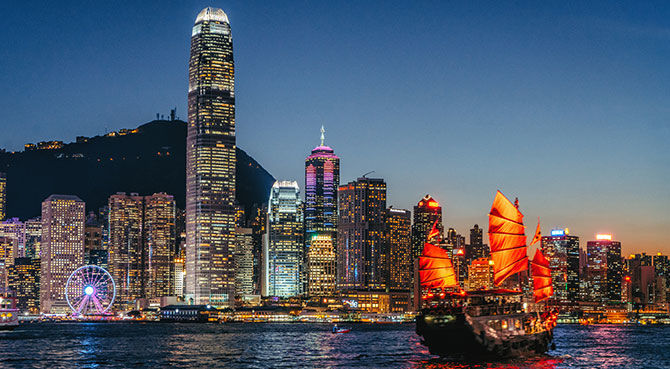
Hong Kong is in the midst of an economic typhoon, being hit on all sides by the simultaneous storms of trade disputes, tariffs and persistent social unrest. With the latter being a unique factor, this economic typhoon has grown from a manageable T3 into a devastating T10.
Tourism and the hospitality industry have played a huge role in Hong Kong’s long-standing financial success. Social unrest in recent months has led to Hong Kong’s hotel workers paying the price, with many placed involuntarily on paid and unpaid leave as occupancy rates plummet. The unemployment rate in this industry has increased gradually from 3.4% at the start of 2019 to 4.3% in July, which is no coincidence.
This growing trend emerged as the government warned that the extradition bill protests had damaged the city’s economy, reporting shrinking figures in tourist arrivals and room occupancy rates. The number of inbound tourists dropped more than 30% for the first ten days in August, and industry figures believe that the protests could be worse for Hong Kong than the 2003 SARS outbreak.
According to the Catering and Hotel Industries Employees General Union, InterContinental Hong Kong sent an email to staff, saying the protests had hurt the economy and its occupancy levels were down considerably. As a consequence, many staff, including department heads, are to take one day of annual leave and two days of unpaid leave in August. The following month, all permanent staff are being forced to take two days of annual leave and another two of unpaid leave.
The union’s organising secretary Ho Hung-Hing could not say how many staff members had been affected yet but added that even though workers were not happy with the arrangement, they had to do what they were told. Meanwhile, CK Asset has reportedly asked staff to take unpaid leave at ten hotels, including the Harbour Grand Hong Kong in North Point, and the Harbour Plaza 8 Degrees in To Kwa Wan.
The ongoing social unrest shows no signs of ending soon and its impact is not restricted to the hospitality industry. According to the financial secretary, Paul Chan, unemployment across the city as a whole is on the rise.
In his August blog, Chan wrote, “Since the unemployment rate in Hong Kong has not increased in the past two years, the public might not feel the immediate impact. Nevertheless, from the experience of dealing with financial crises in the past, the unemployment rate could worsen much quicker than one expects.”
He continued by referring to statistics showing Hong Kong’s past unemployment increases following economic crises, and said, “In 2000 when the dotcom bubble burst, the unemployment rate leapt from 4.4% to 7.5% by mid-2002, and further increased to 8.5% in 2003 due to the outbreak of SARS.”
Chan appears to be telling us that although the economy has been strong for many years, with low unemployment across the region, the economic impact of the current protests is already having an effect. It is not out of the realms of possibility that the impact could worsen and critically affect the employment and income of vast numbers of Hong Kong residents.
Secretary for Labour and Welfare, Law Chi-kwong said, “As the economy is expected to stay weak in the coming months, the local labour market will unavoidably be subject to greater pressure. The government will monitor the labour market situation closely."
In addition to the regularly organised job fairs, the labour department is planning to hold large-scale job fairs on 3 and 4 October in Lok Fu Place, Kowloon and 29 – 30 October at the Hong Kong Polytechnic University. The Government is keen to address issues of unemployment and economic weakness early to prevent the onset of a more serious slide.
HR professionals across APAC are gearing up for a time of economic and social uncertainty that will continue to make it difficult to juggle the welfare needs, financial concerns and recruitment difficulties they already face.




